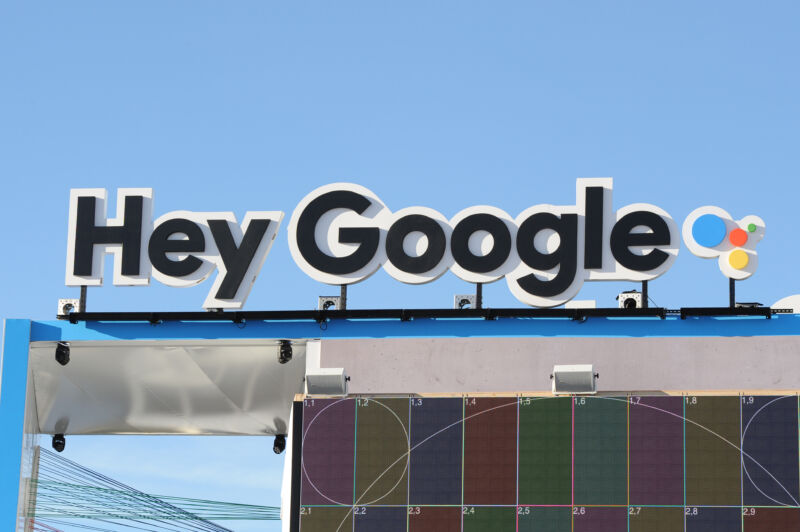
Is the Google Assistant doomed? The evidence is starting to pile up that the division is going down the tubes. The latest is news from CNBC’s Jennifer Elias that says the Google Assistant division has been “reshuffled” to “heavily prioritize” Bard over the Google Assistant. It all sounds like the team is being reassigned.
We’ll get into the report details in a minute, but first a quick recap of the past two years of what the assistant has gone through under Google:
- Google Assistant saw eight major speaker/smart display hardware releases in five years from 2016-2021, but the hardware releases seem to have stopped. The last hardware release was in March 2021. That was two full years ago.
- 2022 saw Google remove Assistant support from two in-house product lines: Nest Wi-Fi and Fitbit wearables.
- 2022 also saw a report from The Information that said Google wanted to “invest less in developing its Google Assistant voice-assisted search for cars and for devices not made by Google.”
- Google Assistant’s driving mode was shut down in 2022.
- Google Assistant’s “Duplex on the web” feature was also shut down in 2022.
- One of Google Assistant’s core unique features, Reminders, is being shut down in favor of Google Task Reminders soon.
- Google Assistant has never made money. The hardware is sold at cost, it doesn’t have ads, and nobody pays a monthly fee to use the Assistant. There’s also the significant server cost to process all those voice commands, though some newer devices have moved to on-device processing in a stealthy cost-cutting move. The Assistant’s biggest competitor, Amazon Alexa, is in the same boat and loses $10 billion a year.
Each one of those developments could maybe be dismissed individually, but together they start to paint the familiar picture of a looming Google shutdown.
Now the latest news from CNBC makes it sound like the Assistant team isn’t going to work on the Assistant anymore. A memo to employees, titled “Changes to Assistant and Bard teams,” lays out a lot of executive changes. One Google Assistant engineering VP, Amar Subramanya, will now lead engineering for Bard. Another VP of engineering for Google Assistant, Jianchang Mao, is leaving Google “for personal reasons.” Mao’s replacement is Peeyush Ranjan, who is currently a VP in Google’s commerce division, overseeing payments. (Payments at Google have been an incredible disaster over the past few years, so seeing someone escape to run a different division is… eyebrow-raising.)
The memo is from Sissie Hsiao, VP and lead of Google Assistant’s business unit, who instructs the Assistant team: “As the Bard teams continue [their] work, we want to ensure we continue to support and execute on the opportunities ahead.” That sounds like the Assistant team is now in a support role for Google’s “code red” fight against ChatGPT.
Merging Google Assistant and Bard would make some sense if the two units weren’t different products. Everyone expected Bard to integrate with Google Search somehow, just like ChatGPT and Bing, but the product the company released is a standalone “experimental” chatbot with no connection to search at all. Just like ChatGPT, it can generate paragraphs of questionably accurate text based on what it sees on the Internet.
Google Assistant is a voice product that is primarily concerned with voice recognition accuracy, recognizing and performing verbal tasks like “Turn off the lights” or “set a reminder,” and “ambient computing” or being available everywhere, on many devices, just like the Star Trek computer. There is some overlap since both services can return answers, but Google Assistant’s current Google Search-powered answer system is great for Google Assistant. Google Bard can generate paragraphs of text, but when those answers are being read aloud, the Assistant’s shorter answers are better than just droning on and on with the clumsy monotone text-to-speech system.
The interfaces of Bard and the Assistant are similar in that they both look like chat apps, and therefore have similar monetization problems, but you really do use both products for different purposes. If we assume the idea of the Google Assistant—a voice assistant that helps you do things—isn’t completely dead at Google, you could imagine a future where Bard’s language model helps it understand what you want to do and will do it, but it feels like the service is years away from something like that. The Assistant today doesn’t have language model problems, though, just voice recognition problems, and Bard won’t help with that.
We’ve seen Google do this all the time—shut down a good project for a replacement that isn’t ready or is full of feature regressions. Bard’s development—and Google’s AI strategy in general—does seem slow compared to OpenAI and Microsoft’s rollout of ChatGPT, so maybe more hands would help with that. That doesn’t necessarily mean you need to take resources away from Google Assistant to do that, but the service is purely a money pit.
https://arstechnica.com/?p=1927818

